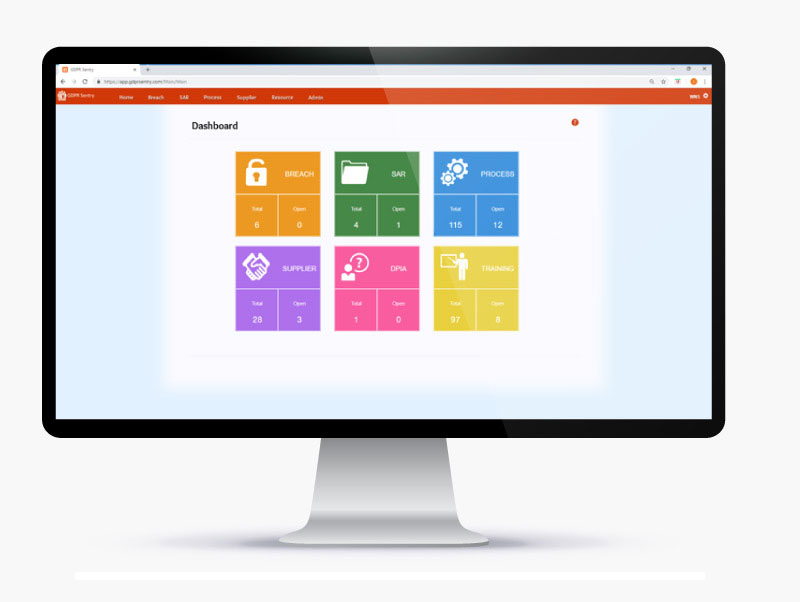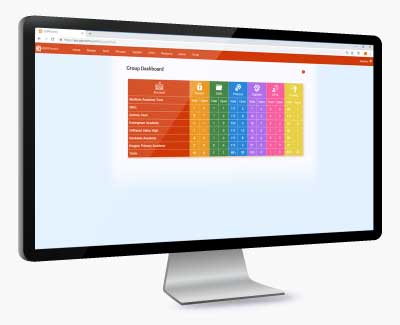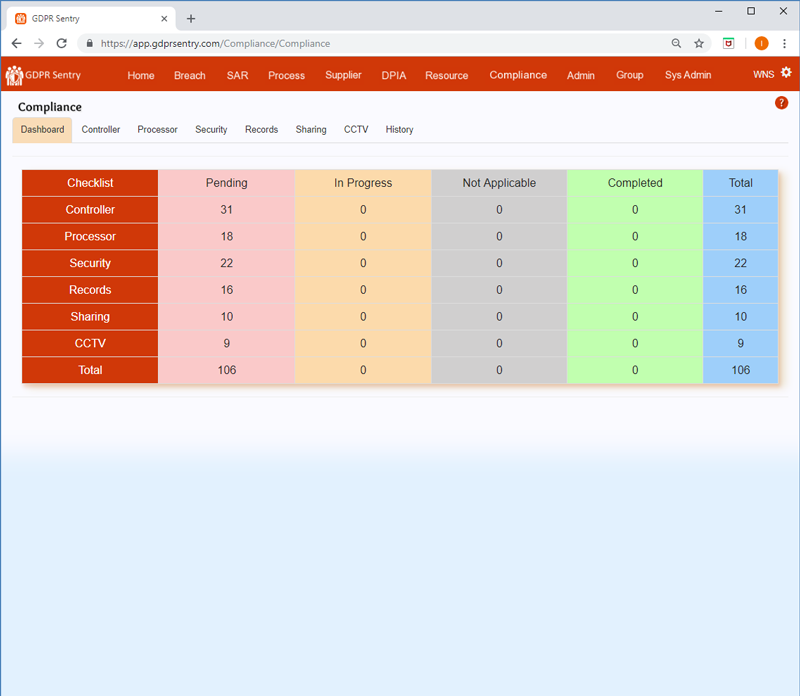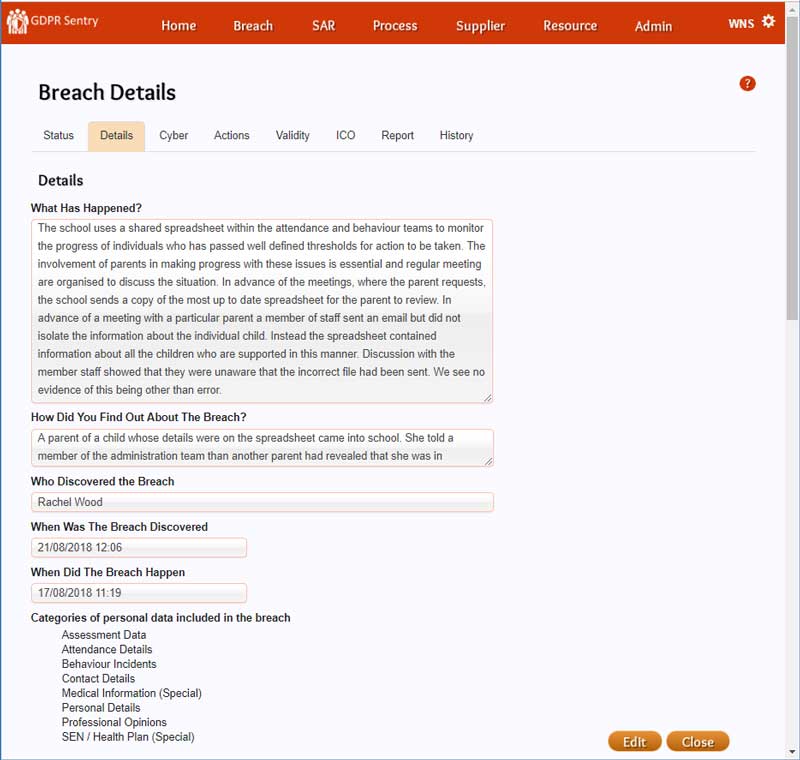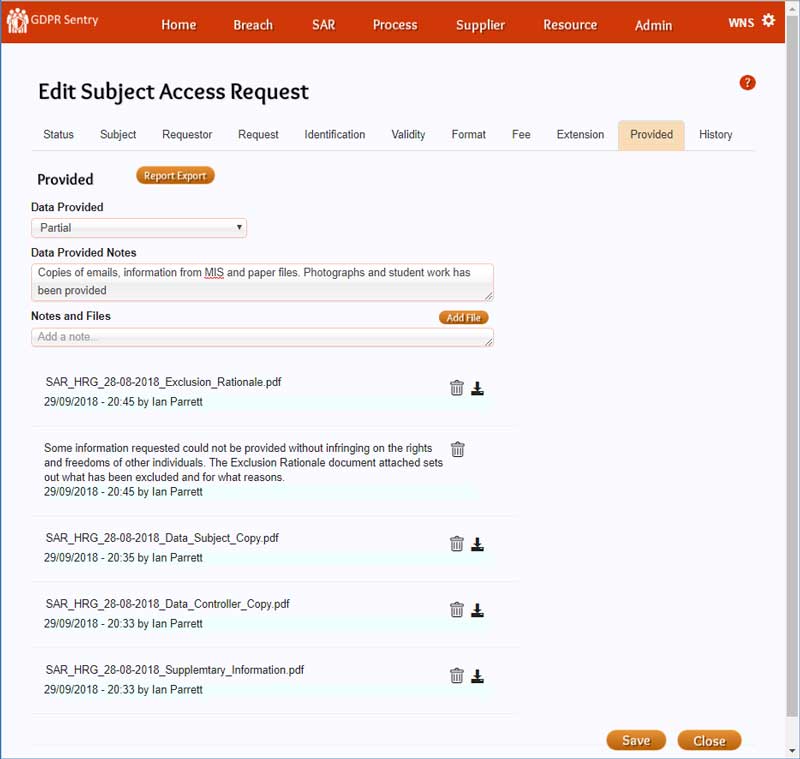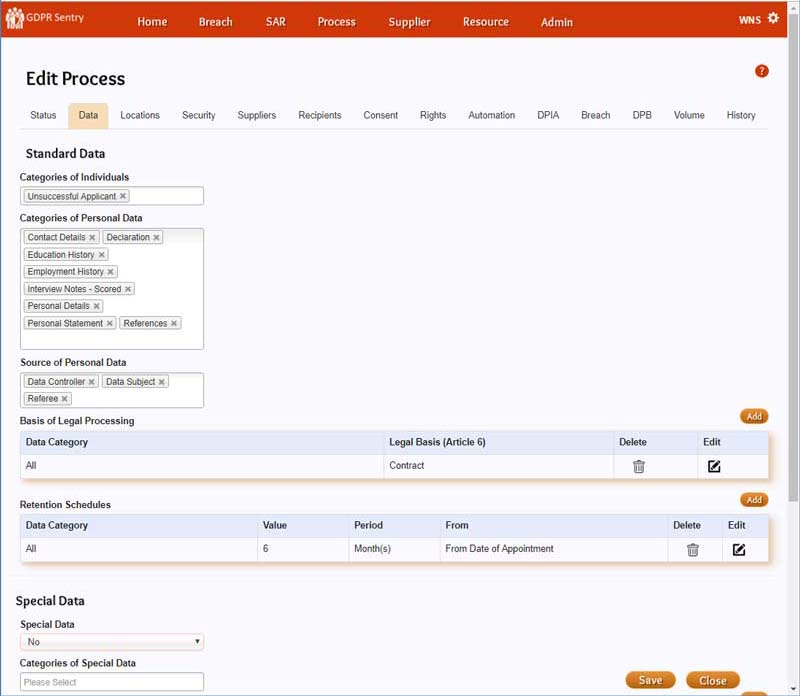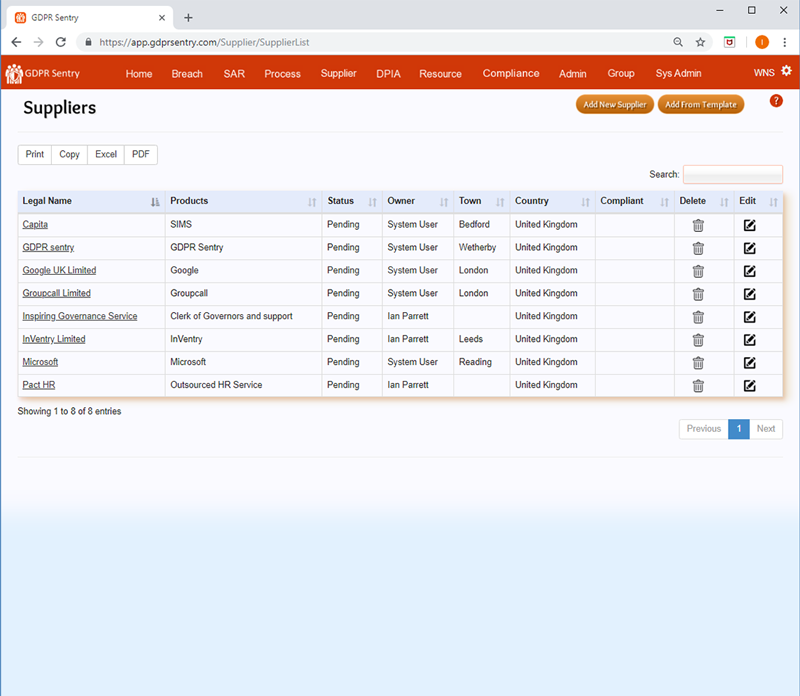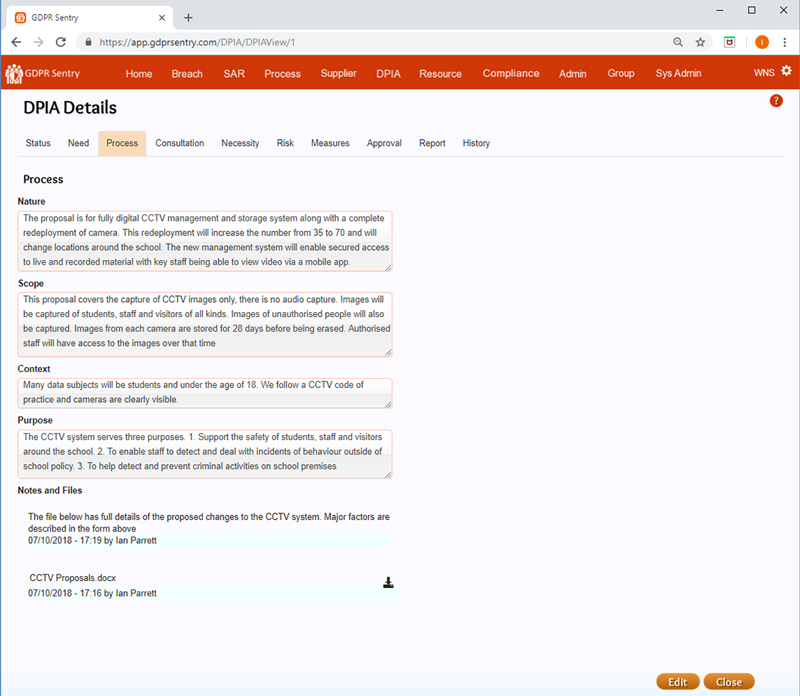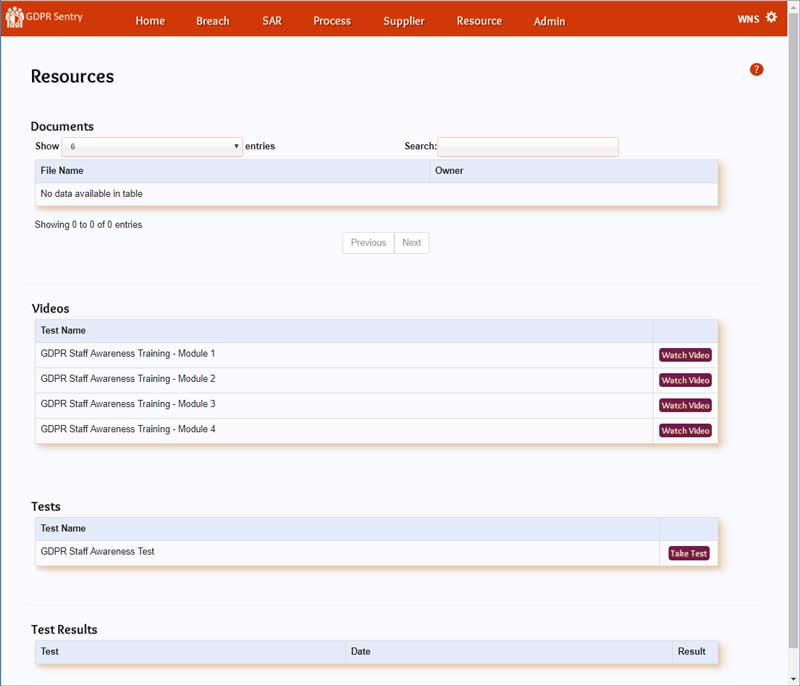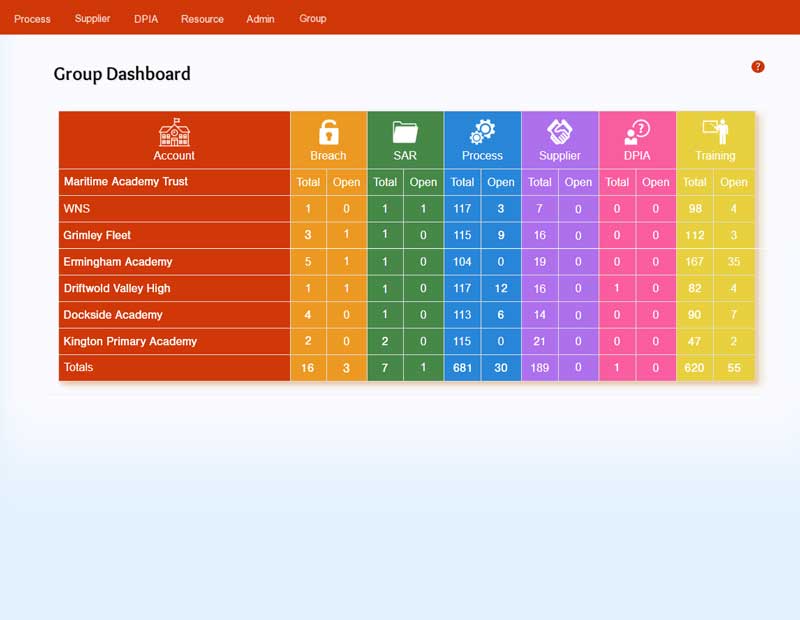Sentry helps manage GDPR compliance every day
Sentry is the hub of GDPR Compliance
We designed Sentry based on two key principles.
First of all, we wanted to make the management of compliance as easy as possible.
Secondly, we have built the system to produce the exact format that the Data Protection Authority (DPA) requires, specifically in relation to breaches, DPIA’s and data mapping.
Sentry can help you with compliance so when you’re ready we can arrange a free trial or a demonstration.

